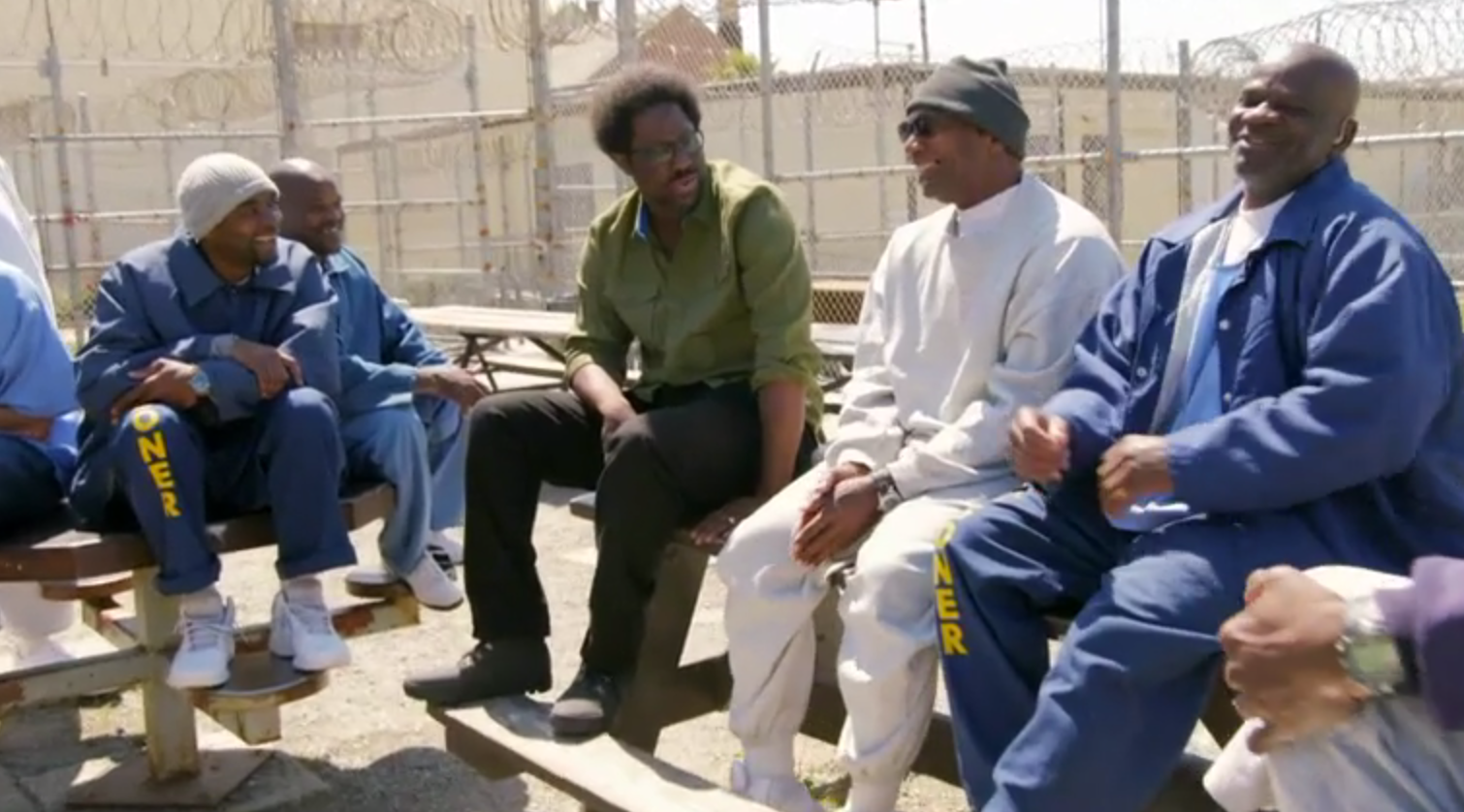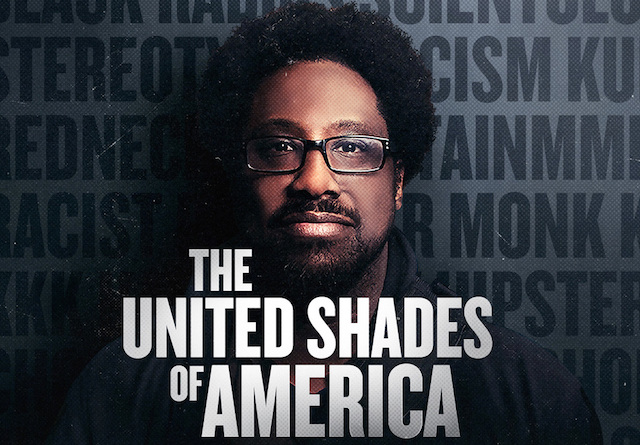Episode Review: United Shades of America Looks Inside San Quentin and Comes Up Interesting

![]()

As a rule, I do not look to CNN for side-splitting humor, and, in fact, have not yet found any. That said, the new series, United Shades of America, hosted by black comedian W. Kamau Bell, promises to be very amusing. The show is scheduled to air on CNN, Sunday nights. I caught the show at 10PM in my area of the planet (Maryland in the greater Washington, DC metropolitan area). It was not the first show in the series, so, after I watched it, I backtracked on my computer to get a look at the first one.
Apparently, the premise of the show is that Mr. Bell is going to interview people in places and situations the rest of us may be aware of, but do not give much thought to. And though these shows are meant to be more documentary than comedy, they are not without their moments of mirth. For example, in his opening show, where Bell—remember, he is black—seeks to interview members of the KKK, is filmed driving to his next Klan destination, telling his viewers, “I’m off to see the wizards.”
The most recent show I caught on my television, dealt with our prison population—specifically, the inmates at San Quentin. It turns out, that facility has changed from one of the worst prisons in the nation to one of the best. As Bell said in an accompanying essay, most other prisons offer only two forms of rehabilitation: A.A. and Jesus. San Quentin, on the other hand, appears to offer a great deal more in the way of useful instruction, well beyond the notion of fall on your knees and throw away that bottle.
On the other hand, he does not candy-coat the fact that the place is a prison. Useful instruction can only cover so much ground. The inmates are still faced with endless boredom. One of the lighter bits in the hour-long show involved the inmates trying to teach Bell how to play Pinochle. Now, far be it for me to look down my nose at that or any other card game that provides amusement, but I absolutely understand the prisoners’ point. I barely knew how to play the game before I went into the Army. Much like life as a prisoner, life as a G.I. is awash with too much time on the inhabitants’ hands. All of a sudden, I became a Pinochle enthusiast. Today, many decades removed from my military service, I would need to completely re-learn the game, if I cared to pick it up, which I don’t. I am far too busy second-guessing creative TV shows, as I am doing now.
It is important to note that this show was more than just a bit of grown-up show-and-tell. Bell had his points to make, and he made them effectively, whether you agree with them or not. He interviewed a number of inmates, not all of them black, who had made great strides toward a productive and fulfilling life, but who would probably spend the entirety of those lives in prison, and not always for cold-blooded murder. Some had been trapped by the “three strikes rule,” which puts a criminal behind bars for a very long time after a third offence, even if that third offence is what we would think of as a petty crime.
But there was another important point the host wanted to make, and on that score, he certainly succeeded. Many of the people he interviewed knew they were not getting out, but did all their purposeful activity anyway, just for the sake of self-redemption.
Of course there was some bias in Bell’s documentary. Nowhere in all his interviews did we get to see any of the “hard cases” who doubtlessly inhabit, even an improved facility like San Quentin. Even so, just because he may have a touch of what many on the right call “liberal bias,” that does not invalidate the points he made—points you do not necessarily have to agree with in their entirety, but to which you ought to give some serious thought.
Read more comedy news.
Thomas Cleveland Lane
Latest posts by Thomas Cleveland Lane (see all)
- Full Frontal Episode Review: Samantha Bee, OK, but Left Bigger Fish Unfried - April 7, 2017
- Episode Review: Trial & Error Ponders: To Plea or Not to Plea - April 6, 2017
- Last Week Tonight Episode Review: John Oliver Has Gone to Pot - April 3, 2017
